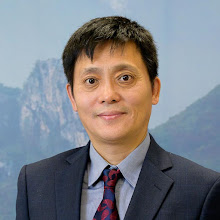In
the UK, strokes are a major health problem. Every year, around 110,000 people
have a stroke in England and it is the third largest cause of death[1].
The
treatment of and productivity loss arising from stroke results in total
societal costs of £8.9 billion a year, with treatment costs accounting for
approximately 5% of total UK NHS costs[2]. More than half of the
costs are incurred on rehabilitation of following strokes.
After
survival from the acute stage, stroke patients usually will be discharged from
hospital. Patients still have hemiplegia, numbness in one side of the body, distortion
of the face and tongue, slurred speech or dysphasia. A long term rehabilitation
care and treatment is very necessary. Good treatment can greatly improve the
symptoms of stroke sequelae, in many cases patients can return completely back to
normal. If there is no treatment or inappropriate treatment in sequelae stage,
patients will have a high risk of a second and even worse stroke.
There
are two main causes of stroke: The
ischemic cerebrovascular disease accounts for 85% of all cases, others are
hemorrhagic cerebrovascular disease. Some risk factors are main reasons of these
two acute cerebrovascular attacks. Include: high blood pressure, high
cholesterol, diabetes, obesity, smoking, drinking excessive alcohol, lack of exercise and
emotional stimulation which may cause a temporary rise in blood pressure.
TCM Perspective
Stroke
in TCM is called Zhong Feng. It means attacked by wind. It is an
internal wind, which is caused by liver yang excess and/or kidney yin
deficiency. In some cases healthy qi deficiency and blood stasis or wind phlegm
obstruction can
became the main reasons.
Acupuncture
especially electric acupuncture and scalp acupuncture can help to reduce muscular
atrophy and improve the myodynamia. A randomized controlled clinical trial showed acupuncture can significantly increase cerebral blood flow velocity of
post stroke patients[3]. Another 3
clinical studies also suggest that acupuncture increases
quality of life and improves mobility and activities of daily living [4].
Buyang
Huanwu Decoction is a famous traditional Chinese
medicine formula, and has been used extensively in the treatment of stroke for
centuries. Many clinical trial and
experimental studies suggest this decoction can benefit strike sequelae through
many molecular mechanisms[5].
In the acute stage of
stroke, western medicine must be the first choice, but in the sequelae stage
Chinese medicine should be a better choice. The effect of acupuncture and herbs
can enhance each other. Chinese Tuina
massage or acupressure also can help a lot in the rehabilitation
of hemiplegia.
Reference:
2.
Omer Saka. Cost of stroke in the United Kingdom. Age
Ageing (2009) 38 (1): 27-32.
3. Ratmansky M. The Effects of Acupuncture on
Cerebral Blood Flow in Post-Stroke Patients: A Randomized Controlled
Trial. J Altern Complement Med. 2015 Nov 16
4. Farmer C. Bringing holistic treatments to the attention of medicine: acupuncture as an effective poststroke rehabilitation J Evid Based Complementary Altern Med. 2015; 20 (2):120-5
5.
Guo Q. A Systems Biology
Perspective on the Molecular Mechanisms Underlying the Therapeutic Effects of Buyang Huanwu
Decoction on Ischemic
Stroke. Rejuvenation Res. 2015; 18(4):313-25.


